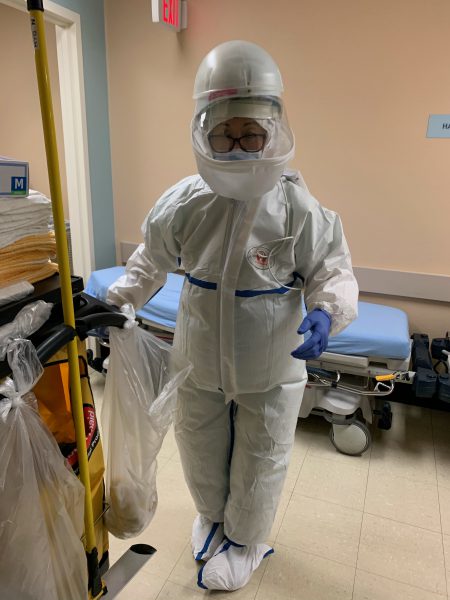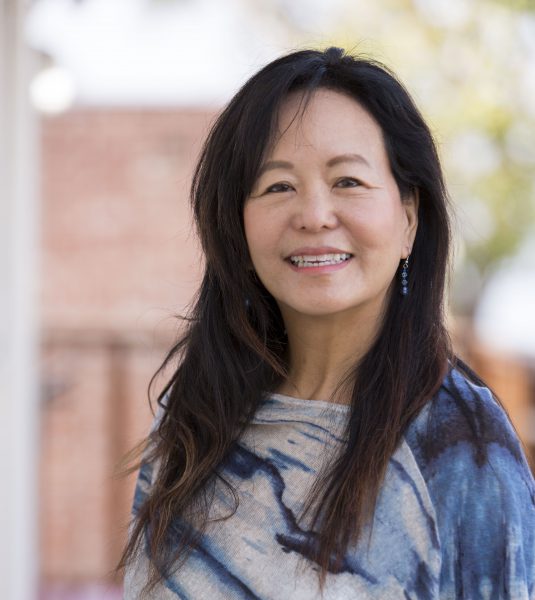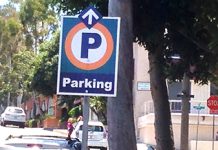
Emergency Medicine physician Dr. Anita Wang of Laguna Beach said “the surge is here.” Wang, who has a functional medicine practice in Laguna Beach when she’s not being called to county field hospitals to help with an influx of stabilized COVID-19 patients, said that since the Thanksgiving holiday, entire families are contracting the virus, which has killed over 1,718 people in Orange County.
The vaccine, which is being distributed to frontline workers and other high-risk individuals first and should reach the general population by March, “will help eradicate the virus,” said Wang, who worked to combat infectious diseases like SARS in China when it broke out years ago. “But it’s not a silver bullet. Respiratory etiquette – handwashing, not touching your face – wearing a mask and staying home if you are infectious,” is crucial, she said. “We have this machismo, ‘I went to work and powered through it.’ During this pandemic, 35 percent of people with COVID went to work sick.”
Last weekend, while many county residents continue to protest the regional stay at home order that went into effect last Sunday, the Orange County Health Care Agency reported more than 5,200 cases, with 3,250 more cases reported Monday. Some 1,486 county residents are in hospitals with the region’s ICU capacity for virus patients dropping to 0.5 percent.
In Laguna Beach, of the 407 cases reported since March, half of them were in the first two weeks of December according to Dr. Gregg DeNicola, chief medical officer and primary care physician at Caduceus Medical Group, where in the group’s three locations, 40 percent of the staff has come down with the virus since March.
“[Our staff] are around patients all day, and while N95 masks are 95 percent effective, 5 percent [of cases of the virus] get past the mask. We send them home and wait until they test negative before they come back,” DeNicola said.
The problem, he said, is that once patients test positive, the Orange County Health Care Agency will call them and inquire about symptoms.
“Far too many patients went back to work, went to gatherings, and went out with friends despite not confirming a negative test after a positive one, or after a close contact,” DeNicola said. “If you’ve gone seven days with no symptoms, they tell you to leave the house, go back to work. I tell my patients to ignore what the health department is telling you. If you’ll allow someone [back to work] who was positive a week ago to cough in your face without a mask… I wouldn’t let them without a negative test.”
In Laguna Beach, he said the recent “surge and spike in cases is terrible. I think it’s because of Thanksgiving and we are expecting another one in early to mid January because of Christmas. People are just not quarantining.”
DiNicola said that as the virus has mutated, symptoms have changed. “The vast majority have diarrhea, headaches and now a dry cough and stuffy nose. While they are getting better quickly, we put six people in the hospital last week, 10 this month.”
Field hospitals like the one built at Fairview Developmental Center in Costa Mesa—where Wang will work starting Dec. 21—can ease the burden of emergency rooms throughout the county, taking in the overflow of stabilized, non-critical COVID patients. Wang said that the difference between now and last spring “is that doctors have a much better sense of how to treat the virus, what therapeutics actually help.” She added that patients catching the virus who are deficient in vitamin D and zinc “have a bigger chance of going into the ICU. It’s important to make sure these vitamin levels are normal to keep people from getting sick. My goal is to make sure my patients have resilient immune systems.”
Wang said that one of the areas of COVID-19 being overlooked is the treatment of “long haulers [those who still have symptoms months after being infected.] I have a woman who after six months, considered it a victory to walk to the bathroom and back. Athletes that were running marathons can’t walk around the block. These college kids having COVID parties [to catch the virus] are scary. It’s not something you just want to catch and get it over with.”

The Pfizer messenger RNA vaccine, said DeNicola, will help, with the first doses going to frontline workers at hospitals, large government facilities, high-risk seniors, nursing homes and assisted living facilities and jails. “We have been inundated with phone calls from people wanting the vaccine. Caduceus will get vaccines in March. We will start with staff and then begin with patients. We will prioritize patients with health issues. I have a long list of seniors, those with immune deficiencies, cancer, COPD, asthma. I don’t envision running out, but if so, we will prioritize high-risk patients.”
Found to be 95% effective, side effects from the Pfizer vaccine, which does nothing once the virus infects you, were uncommon, DeNicola said, naming the usual site pain, fatigue, headache, and chills. “These were more common after the second dose that is required with the Pfizer vaccine. More traditional antibody vaccines are also asking for approval, and may become available through the spring. Patients could then pick their personal choice,” he said, adding that the duration of the immunity from the vaccine is unknown and an annual vaccine, much like the flu shot, is likely.
“For many of us, the coronavirus has been the most challenging experience of our careers, wrote Dr. Rod Hochman, President and CEO at Providence, which includes Mission Hospital in Laguna Beach, in a letter to the community, “and we still have a few more hard months to go. But the vaccine marks a turning point and will be an important way that we change the trajectory of the pandemic.”




